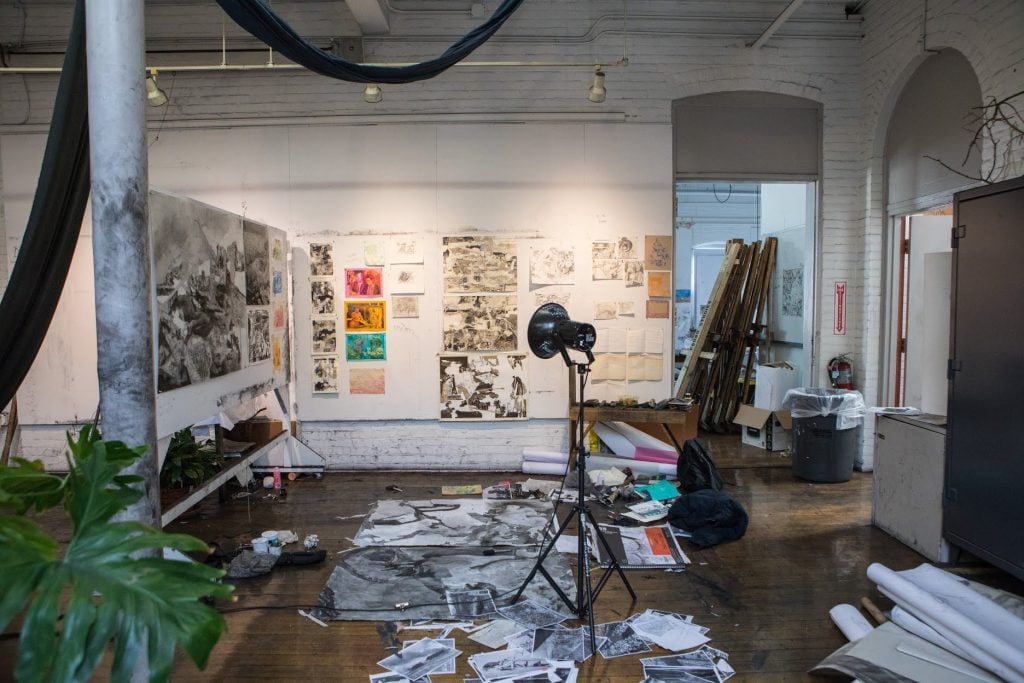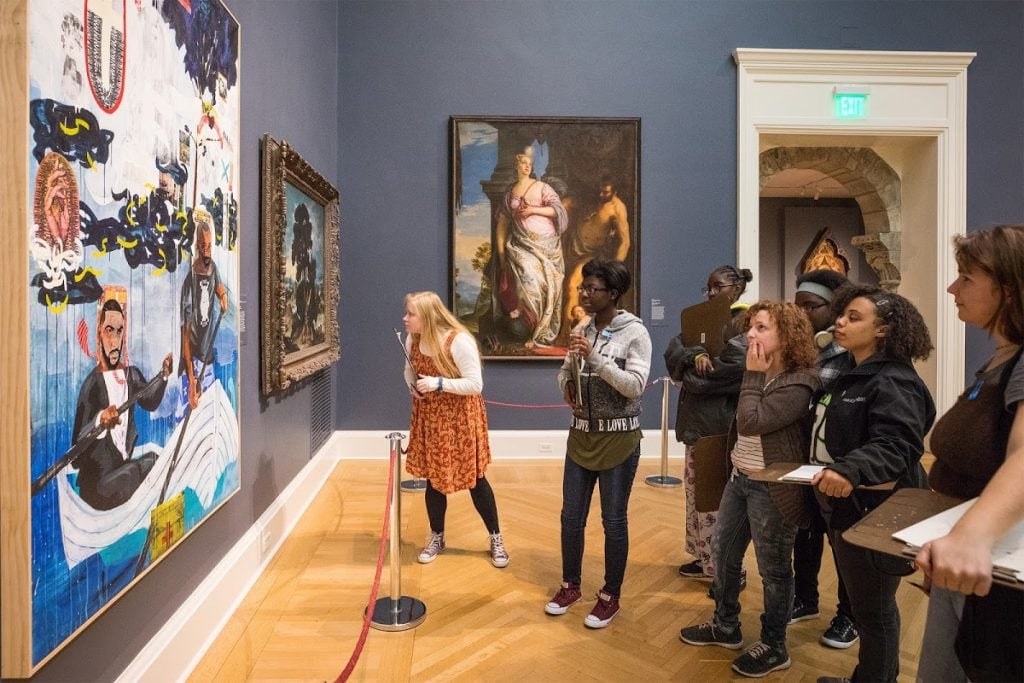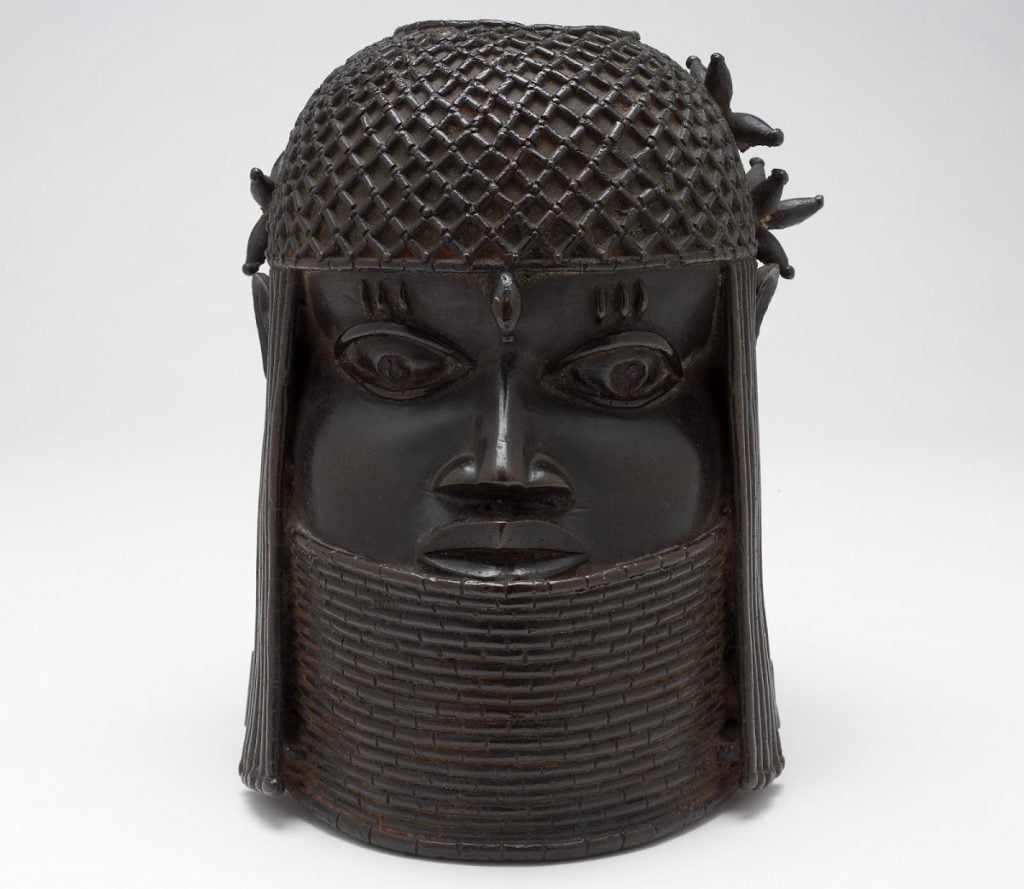Art World
The Rhode Island School of Design Is Hiring 10 New Faculty Members Dedicated Entirely to Race and Decolonization Studies
A major anonymous gift will fund salaries for the new positions for five years.

A major anonymous gift will fund salaries for the new positions for five years.

Sarah Cascone

As art institutions around the US grapple with the challenge of addressing diversity, equity, and inclusion issues, the Rhode Island School of Design has taken a dramatic step forward by launching a job search for no fewer than 10 new faculty members specializing in race, decolonization, and cultural representation.
“In order to create a more racially just RISD, we must do more than simply combat racism where we find it,” RISD president Rosanne Somerson told Artnet News in an email. “We must be proactively anti-racist in principle and practice, and make consequential, scaled changes throughout the institution.” Ten new positions are set to be filled by the fall 2021 semester.
RISD is facing a $50 million deficit as a result of the prolonged lockdown this year. But the new hires will be funded by one of the largest anonymous donations in the institution’s history. The gift covers the first five years of the faculty members’ salaries.
The killing of George Floyd by Minneapolis police and the subsequent Black Lives Matter protests that swept across the country this past summer have led to a moment of reckoning at cultural institutions. Museums have faced growing criticism for failing to reflect the diversity in their communities, for their disproportionately white leadership, and for issues of racial discrimination among staff.

Students consider The Wanderer by Jordan Seaberry. Photo by Jo Sittenfeld, courtesy of RISD.
In New York, both the Metropolitan Museum of Art and the Guggenheim Museum unveiled new equity and diversity plans following allegations of a toxic workplace culture.
In addition to the new faculty members, RISD’s plan, announced in July, pledges to increase recruitment and enrollment of students of color, create a new office of discrimination reporting, and require students to take social equity and inclusion coursework.
“We repeatedly heard from our community that the most definitive transformation we could make would be to increase the diversity of the scholarship of our faculty and thereby our pedagogy,” said Somerson, who plans to hire academics “whose practice centers on issues of race and decoloniality in art and design, launching a fundamental transformation toward diversifying and expanding our curricula.”
When it comes to the RISD museum collection, the institution plans to repatriate objects in its collection such as Native American burial artifacts, and the looted bronze Benin bust, Head of a King (Oba), which was deaccessioned this fall. Moving forward, the museum will dedicate 75 percent of its acquisitions budget to works by underrepresented artists.

Benin bronze, Head of a King (Oba), probably 1700s. Deaccessioned by the Fine Arts Committee and Board of Governors, fall 2020. Photo courtesy of RISD.
“I don’t know of any other university or college doing anything quite like that,” Jim Vincent, president of the Providence branch of the NAACP told the Boston Globe in July. “I applaud them for being part of the solution. It’s certainly something different and bold.”
Currently, the 170 full-time faculty members on contract at the design school are 72 percent white. Eight percent are Asian, and five percent each are Black and Hispanic. The student body is somewhat more diverse, with 27 percent reported as white, 16 percent Asian, eight percent Hispanic, and four percent Black (37 percent are international students whose race has not been identified).
To hold the school accountable to its progressive promises, Somerson has unveiled a new page on the RISD website tracking the progress on each point.
The job listings for the 10 new positions are currently accepting applicants through November 20. Three openings are in the fine arts, three in architecture and design, and four in the liberal arts and experimental and foundation studied. Experts from such varied fields as apparel or jewelry-making to landscape architecture and digital media are invited to apply.
“We seek faculty whose scholarship, creative practice, and research addresses the lives, experiences, and cultural traditions of Black, Indigenous, and communities of color,” the listing reads. “The ideal candidates will not only be prepared to offer courses that both expand and seek to decolonize/challenge traditional art and design curriculum and pedagogies, but also help expand the work of the Center for Social Equity and Inclusion as it engages our various constituencies and communities.”